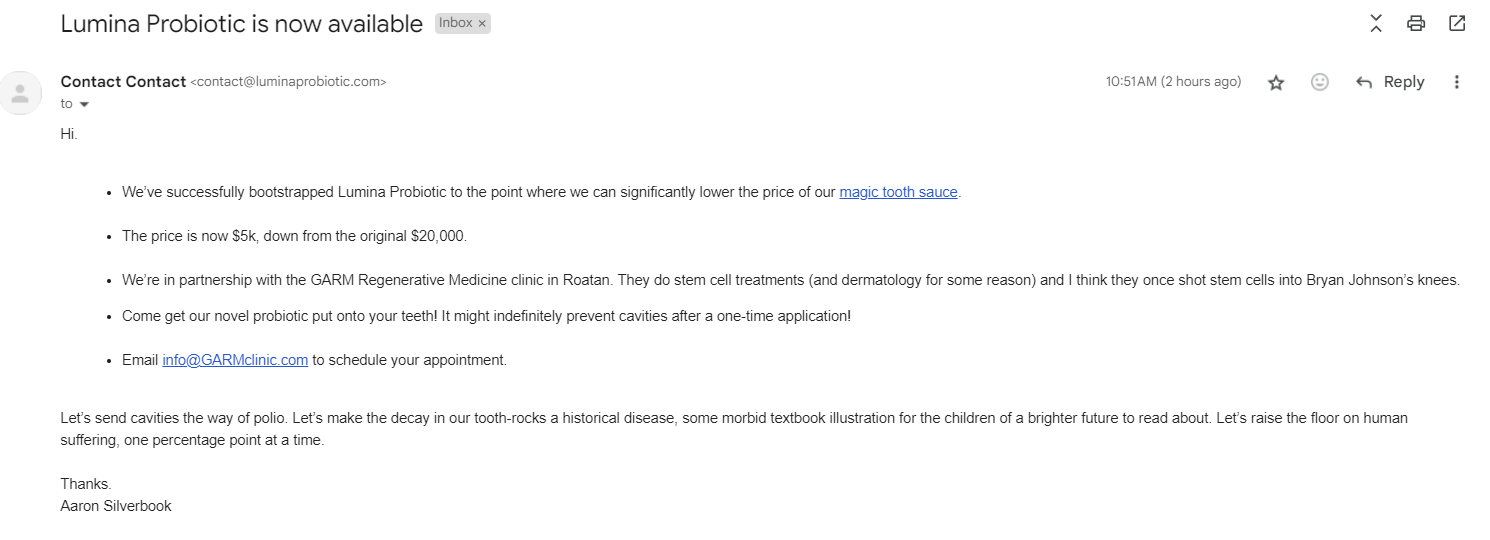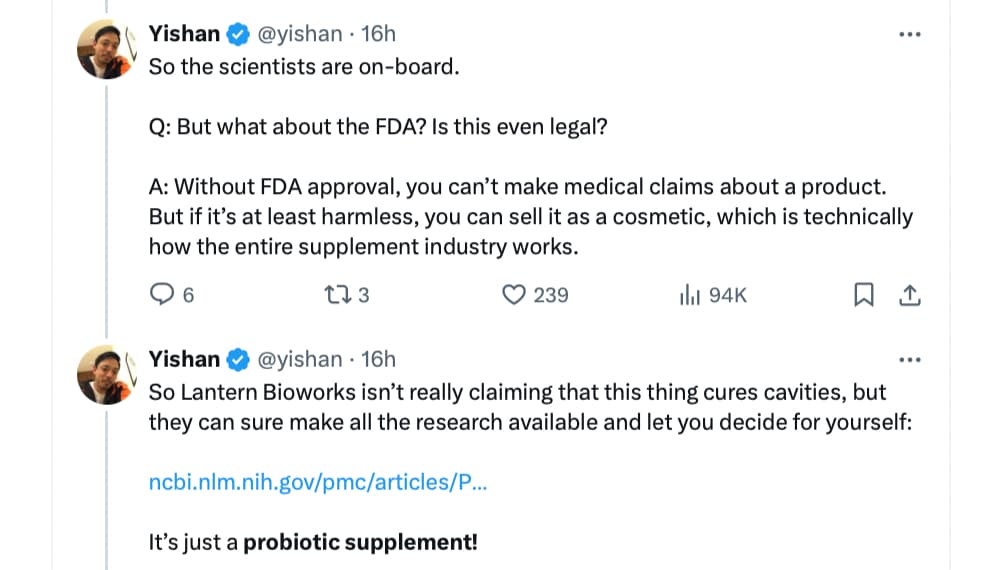This might be of interest to some: Hard to read, but it says the price of the treatment dropped to $5K.
@ConquerAging could this solve your Serratia problem? Thoughts?
1: What is BCS3-L1?
BCS3-L1 (brand name “Lumina”) is a genetically-modified strain of the tooth decay bacterium streptococcus mutans.
S. mutans lives on your teeth and metabolizes any spare sugar that comes its way into the waste product lactic acid. If too much s. mutans gets together in one place, all the lactic acid dissolves the tooth’s enamel coating, causing cavities.
BCS3-LI has four main genetic modifications:
- It produces a weak antibiotic, mutacin-1140, which kills competing oral bacteria.
- It’s immune to mutacin-1140, so it doesn’t kill itself.
- It metabolizes sugar through a different chemical pathway that ends in alcohol instead of lactic acid.
- It lacks a peptide that its species usually uses to arrange gene transfers with other bacteria.
The antibiotic helps it win the Darwinian competition in your mouth to become King Of The Oral Bacteria. The alcohol metabolism means it won’t produce lactic acid (and so won’t cause tooth decay). The peptide knockout prevents it from transferring genes back and forth with other bacteria that might either inactivate it or leak its advantage.
https://drive.google.com/drive/folders/18ZDSe92LgLmS0sUbosvNxByii_1kjnEj
" Mutacin 1140 is a bacteriocin produced by Streptococcus mutans.[1] It has activity against a broad spectrum of Gram-positive bacteria. It is a member of the class of compounds known as lantibiotics." Wikipedia, Mutacin 1140.
" Might it disrupt anywhere else, though? Mutacin 1140 is an effective bacteriocin against gram-positive bacteria. Bacteria can develop resistance to it, but not easily—it interferes with a highly-conserved part of peptidoglycan synthesis (as shown in the 2008 paper Pharmacodynamic activity of the lantibiotic MU1140). Any gram-positive bacteria in your mouth might be killed as collateral damage."
It might not since Serratia marcescens is gram positive.
I think this is a great story and I can’t wait for the ending. My only question would be what this bacteria does when let loose in the bloodstream. My understanding is that mouth bacteria eventually are swallowed and a tiny percentage get through to the bloodstream and some are nasty and cause inflammation around lesions…plaque. Will this bacteria get along or cause inflammation and plaque?
They should give it away to people in Honduras and follow them around for a while.
The probiotics that decrease glucose response, now this, and this: https://zbiotics.com/ is making my head spin! Interesting stuff.

Available for preorder. (Claim to be shipping in June.)
$250 for one-time, at-home treatment.
Are there any clinical trials of this product that validate the effectiveness and risk profile?
All I can find is this:
From this thread:
Full thread this is from: (a guy who is an investor in the company) https://x.com/yishan/status/1777925961927082426
You know the answer.
Some startups in the longevity space are at least attempting some small clinical trials, which is better than nothing. If it was my startup I’d certainly be focused on getting some good human data.
Rejuvant (AKG) did this study, just as an example:
Hopefully it will never be allowed ;p

